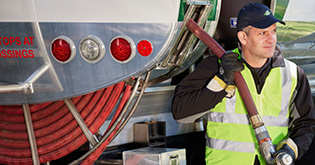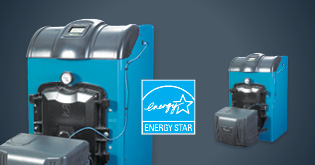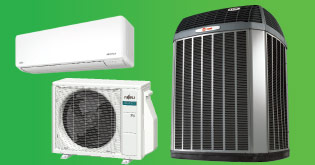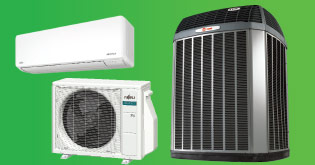- My Account:
- Sign In
- Register
- Make Payment
Propane safety and handling.

Propane use - safe handling tips and information.
Many homes and businesses use propane gas for heat, hot water, cooking and electricity generation. It's important that you use caution when handling tanks, fuel lines, appliances
and generators to ensure safety.
When handled properly, propane is a very versatile and safe fuel.
Here are some important safety tips:
Handle propane tanks carefully
- Don’t use or store propane tanks in basements or living spaces
- Properly secure portable propane tanks when transporting
- Do not leave portable propane tanks in cars or closed vehicles
- Secure temporary tanks when used for building heat, hot water, or cooking
- Contact a qualified propane service retailer to connect tanks to appliances
Use propane gas appliances with care
- Do not use propane gas BBQ grills inside
- Refrain from using stoves or ovens for space heating
- Do not use portable electric generators indoors – keep outside of building
- Have a qualified propane service technician connect appliances and perform a leak test
If you smell gas
- Immediately extinguish all smoking materials and open flames
- Get everyone out of the area where you suspect the gas is leaking
- Turn off the gas supply valve of your propane tank if it is safe to do so
- Once away from the leak, contact your propane supplier. If you can’t reach them, call 911
- Do not return to the area until your propane retailer, emergency responder, or qualified service technician determines it is safe to do so
- Get your system checked. Before you attempt to use any of your propane appliances, your propane retailer or a qualified service technician must check your entire system to ensure that it is leak-free.
DO NOT RUN OUT OF GAS!
Serious safety hazards, including fire or explosion, can result. If an appliance valve or a gas line is left open when the propane supply runs out, a leak could occur
when the system is recharged with propane. Air and moisture could get into an empty or depleted storage tank, which can cause rust build-up inside the tank. Rust can decrease the concentration of the odor of propane, making it harder to smell.
If your propane tank runs out of gas, any pilot lights on your appliances will go out. This can be extremely dangerous if not handled properly.
A leak check is required.
In many states, a propane retailer or a qualified service technician must perform a leak check of your propane system before turning on the gas.
Set up regular delivery.
Establish a regular delivery schedule with your propane retailer. Also, periodically check the fuel gauge on your propane tank. If the fuel level drops below 20%, call your propane retailer.
What is odor loss?
Odor loss can also diminish propane's smell. On rare occasions, propane can lose its odor. Several things can cause this including:
- Air, water, or rust in a propane tank or cylinder can reduce propane odor concentration.
- If the propane is leaking underground, its passage through soil may reduce the smell of propane.
- The propane odor may stick to the inside surfaces of gas piping and distribution systems and possibly other materials.
- Since there is a possibility of odor loss or problems with your sense of smell, you should respond immediately to even a faint odor of gas.
If you are concerned that you or others in your home may have difficulty smelling propane, consider buying one or more propane gas detectors.
Consider installing propane gas detectors.
In some circumstances, you may not smell a propane leak. Propane gas detectors are designed to sound an alarm if they sense the presence of propane. Their operation does not depend on
the concentration of odorant in the air, just the propane concentration at the detector. We recommend that you consider installing one or more propane gas detectors. This is important if you or others in your home have difficulty smelling propane,
or if appliances are in little-used areas in your home where the smell of propane might not be detected. Detectors can provide an additional measure of security. Detector quality is important, so be sure the units you buy are listed by Underwriters
Laboratories (UL). To be sure propane gas detectors operate properly, install and maintain them as the manufacturer recommends. Even if you install gas detectors, have a qualified service technician inspect your propane system and propane appliances
periodically.
MAKE SURE YOU KNOW THE FACTS ABOUT CARBON MONOXIDE.
What is carbon monoxide?
Carbon monoxide (CO) is a colorless, odorless, tasteless, and toxic gas. Smoking a cigarette; idling a gasoline engine; and burning fuel oil, wood, kerosene, natural gas, and propane all produce CO. High
levels of CO can be produced when fuels are burned incompletely.
Where do high levels of CO come from?
High levels of CO can be generated by appliances that are defective or improperly installed or maintained. CO can also enter a home if an appliance venting system or chimney becomes blocked
(for example, by a bird's nest).
CO can be deadly!
High levels of CO can make you dizzy, give you headaches, or cause flu-like symptoms In extreme cases, high levels of or extended exposure to CO can result in brain damage or death. Young children; the elderly;
people with heart disease; and those under the influence of alcohol, drugs, or medication are particularly susceptible to CO poisoning.
Symptoms of CO poisoning include:
- Headache
- Dizziness
- Shortness of breath
- Nausea
- Fatigue
CO detectors can improve safety.
CO detectors are designed to sound an alarm when they sense excessive levels of CO in the air. We recommend that you consider installing a CO detector listed by UL on each level of your home.
Be sure to follow the manufacturer's instructions regarding installation, location, and maintenance. These devices can provide an extra measure of safety.
If you suspect that CO is present - ACT IMMEDIATELY!
- If you or a family member shows physical symptoms of CO poisoning, get everyone out of the building and call 911 or your local fire department.
- If it is safe to do so, open windows to allow entry of fresh air, and turn off any appliances you suspect may be releasing the CO.
- If no one has physical symptoms of CO poisoning, but you suspect that CO is present, call your propane retailer or a qualified service technician to check CO levels and your propane equipment.
What can you do to help reduce the risk of CO poisoning?
- Have a qualified service technician check your propane appliances and venting systems annually, preferably before the heating season begins.
- Install UL-listed CO detectors on every level of your home.
- Never use a gas oven or range-top burners to provide space heating.
- Never use portable heaters indoors, unless they are designed and approved for indoor use.
- Never use a barbecue grill (propane or charcoal) indoors for cooking or heating.
- Regularly check your appliance exhaust vents for blockage
Signs of improper appliance operation that can generate high CO levels:
- Sooting, especially on appliances and vents
- Unfamiliar or burning odor
- Increased moisture inside of windows
As always, if you have any questions or concerns about the safety or handling of your propane system, please contact us immediately to have one of our qualified technicians take a look at it as soon as possible.





.jpg?sfvrsn=8bd8912d_3)